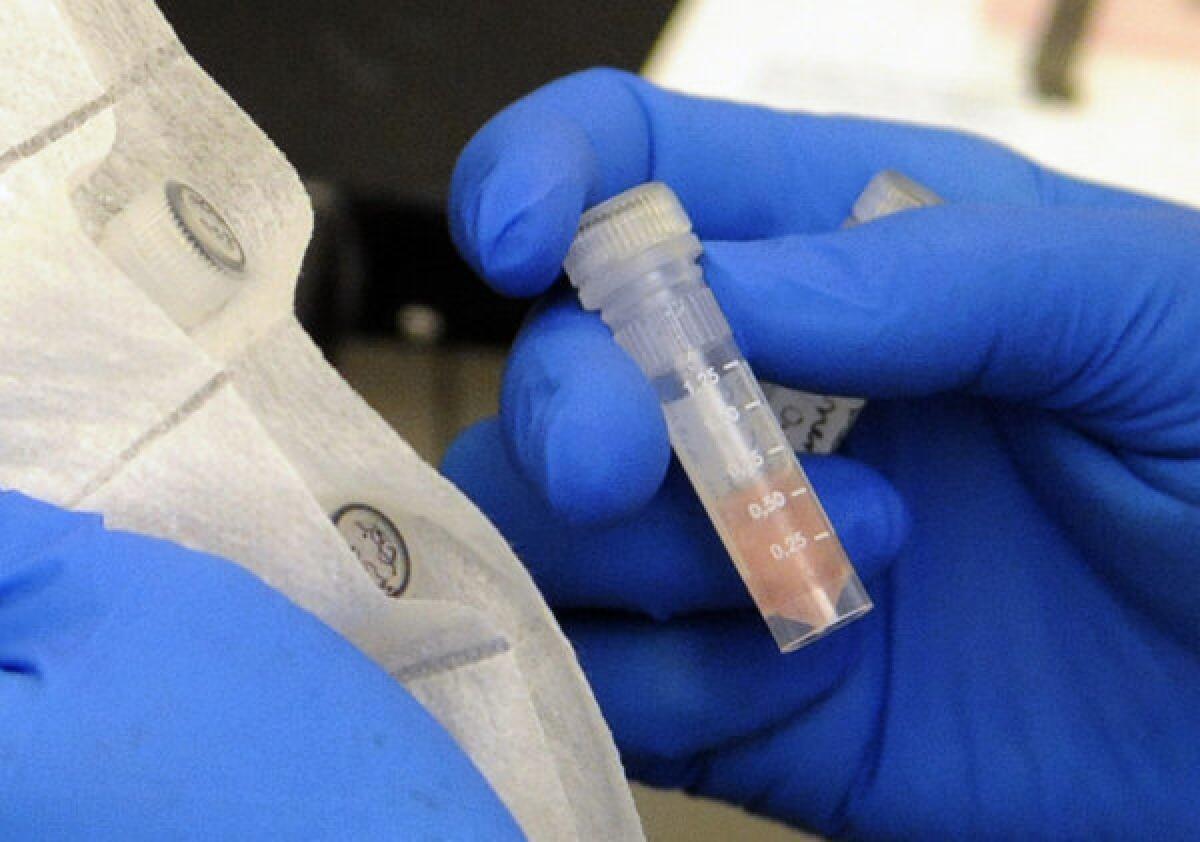FDA finds mold, other contaminants at some drug compounders

Black particles floating in medication; rust and mold in “clean rooms” where injectable drugs are packaged, workers handling sterile products with bare hands.
These were among the major violations a team of U.S. Food and Drug Administration inspectors uncovered recently after investigating 31 drug compounding pharmacies -- a special sweep undertaken in the wake of a deadly outbreak of meningitis spread by tainted drugs. None of the compounding pharmacies was in California.
“It may surprise some people to know that, even in light of recent tragic events, some of our firms still challenge our authority to conduct full inspections of their facilities,” said Dr. Margaret Hamburg, commissioner of the FDA.
Results of the sweep were announced late this week. All but one of the 31 facilities was served with an inspection report, or FDA Form 483, which is traditionally a precursor to a formal action.
According to an agency statement, inspectors identified the 31 facilities as producing “high-risk” sterile drugs. Inspectors used past reports of serious adverse events, previous inspection reports and reported deaths to create the list.
Hamburg said that at least four of the targeted firms attempted to block full access to records or facilities. In at least two cases, FDA investigators had to seek search warrants and were accompanied by U.S. Marshals.
“These challenges and others highlight the need for clearer authorities for FDA to efficiently protect public health,” Hamburg said in a prepared statement.
Compounding pharmacies are licensed to prepare bulk drug orders for individuals with a doctor’s prescription. Over the years however, some compounding operations have begun operating as large drug operations, supplying medications to hospitals and clinics without individual prescriptions.
Such was the case with the New England Compounding Center in Massachusetts. Last year, an injectable steroid produced at the center was linked to 53 deaths and more than 700 illnesses. The incident raised serious questions about compounding pharmacy oversight.
The recent inspections were conducted in 18 states. The reports can be viewed here.
Return to Booster Shots blog.
Follow me on Twitter @montemorin
More to Read
Start your day right
Sign up for Essential California for news, features and recommendations from the L.A. Times and beyond in your inbox six days a week.
You may occasionally receive promotional content from the Los Angeles Times.







